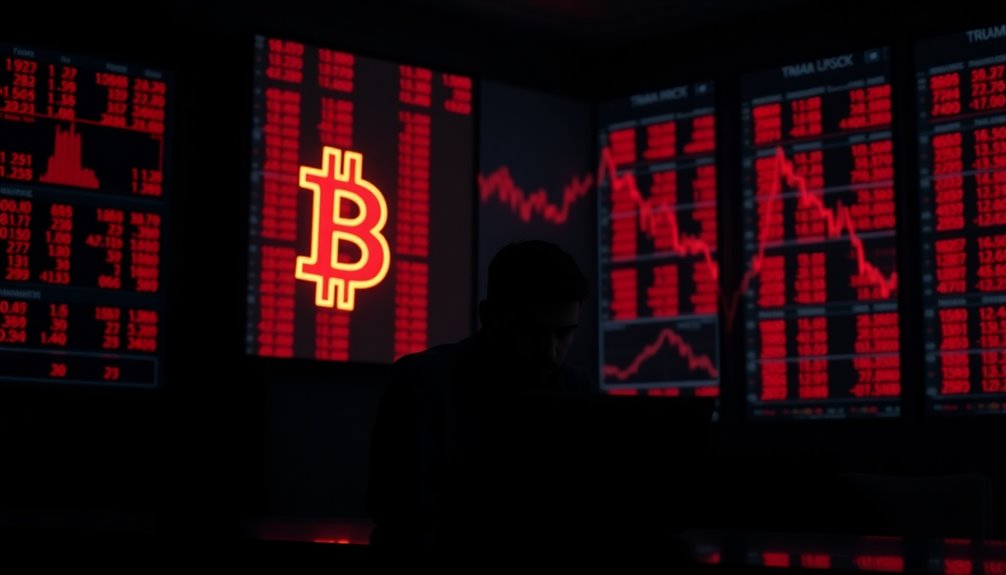Bitcoin's sharp decline after the U.S. government's Strategic Bitcoin Reserve announcement has left many investors questioning their expectations. You might wonder if this reaction reflects a deeper misunderstanding of market dynamics. While some view the reserve as a long-term positive, others seem caught in a classic "sell the news" trap. What does this mean for the future of Bitcoin and investor sentiment? The answers may not be as clear as they first appear.

Bitcoin slipped nearly 6% shortly after former President Trump's announcement about the Strategic Bitcoin Reserve, dropping from $90,400 to $84,979. This price decline wasn't just a fluke; the entire crypto market reacted sharply, with other major players like Ether, XRP, Solana, and Cardano also facing significant drops. You could almost feel the collective sigh of disappointment as Bitcoin plummeted from $90,251 to $85,091 in less than an hour after the announcement, highlighting just how swiftly sentiment can shift in the volatile world of cryptocurrencies.
Bitcoin's near 6% drop post-Trump's Strategic Bitcoin Reserve announcement highlights the volatile nature of cryptocurrency sentiment.
The market had built up expectations for a more substantial commitment to Bitcoin purchases from the government. When it became clear that this reserve would focus solely on existing holdings from seized assets, the disappointment led to a sell-off. This "sell the news" phenomenon is common in trading; investors often react by liquidating their positions after major announcements. It's a reminder that market sentiment can oscillate wildly based on news, and in this case, many felt let down.
Despite the initial drop, Bitcoin managed to recover partially, bouncing back to around $87,202. Still, the price movement underscored the cautious atmosphere surrounding the Strategic Bitcoin Reserve, which will be capitalized solely with Bitcoin seized from criminal or civil asset forfeiture proceedings. The government's existing holdings of approximately 200,000 Bitcoin are being treated as a long-term store of value, akin to a "digital Fort Knox." However, there's no plan for new acquisitions, which left investors wanting more.
As the U.S. Treasury manages this reserve, it raises questions about the broader implications for the dollar's value and the decentralized nature of cryptocurrencies. Some experts worry that government involvement could undermine what many see as a key advantage of cryptocurrencies: their independence from government control. The establishment of such reserves might even inspire other nations to follow suit, potentially stabilizing the global crypto landscape.
In a world where economic and political factors intertwine, your perspective on this announcement could greatly influence your investment strategy. The sudden shift in market sentiment illustrates just how critical clear and actionable policy announcements are for influencing market behavior. If you're navigating these waters, staying informed and adaptable will be essential as the digital asset landscape continues to evolve.









